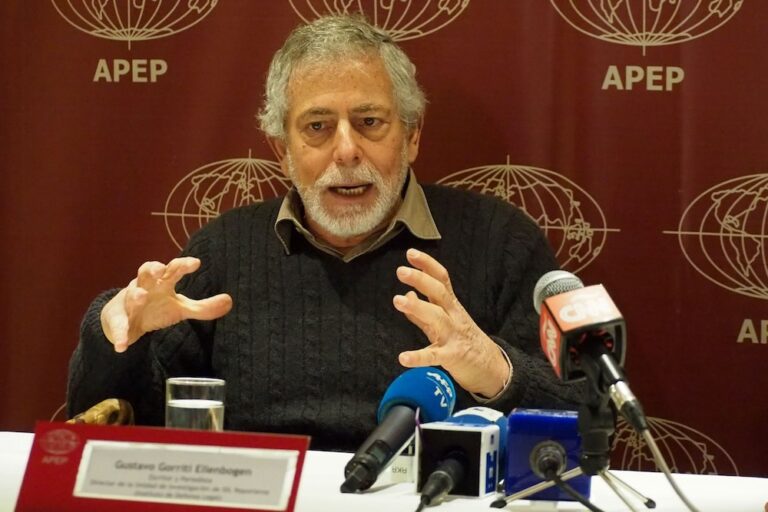The journalist is accused of disrupting public tranquility and disturbances to the detriment of the State, by instigating the public to commit the crime of rebellion.
(IPYS/IFEX) – Prosecutor Sandra Alarcón, of the prosecutor’s office in Alto Amazonas, has requested a 10 year prison sentence and civil reparations in the amount of 15000 nuevos soles (US$ 5000) for journalist Geovanni Acate, director of Radio Televisión Oriente in Yurimaguas, Loreto region, northeastern Perú, because he reported about protests that took place in the region in 2009.
The journalist is accused of, among other things, disrupting public tranquility, crimes against public peace, and disturbances to the detriment of the State, the population and the constitutional order, by instigating the public to commit the crime of rebellion. The prosecutor has also requested that Mario Bartolini, an Italian priest who works for the radio station, be sentenced to an 11-year prison sentence and expelled from the country.
Constante Díaz, Acate’s lawyer, observed the prosecutor’s ruling, pointing out it lacks professionalism and is technically flawed. He also accused Alarcón of acting in a subjective manner, in part because she did not attend several of the proceedings involving the accused and was not present to view the videos of the protests. “The prosecutor is accusing Bartolini of leading a mobilization, a fact that has been refuted by a police report, which leads us to conclude that the prosecutor has not read the file”, stated the journalist.
Criminal Law specialist Roberto Pereira stated that the ruling attempts to justify the assignment of responsibility for the crimes in question to Acate by attributing to him favorable opinions about the protest and accusing him of not having reported certain information about the protest.
According to the specialist, the prosecutor has incurred the crime of legal prevarication, having issued a ruling that is manifestly contrary to the law, insofar as the Constitution expressly proscribes the “crime of opinion” from the legal system.
IPYS expresses its concern about this and other cases of journalists who have become victims of diverse legal processes against them after they reported on the native communities’ protests. IPYS believes these cases ahould be considered as judicial persecution.


